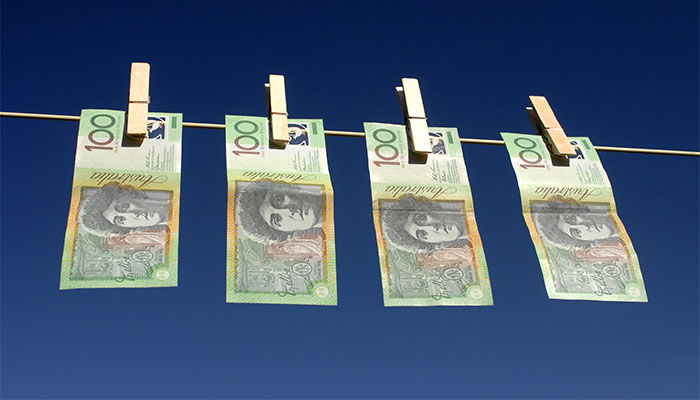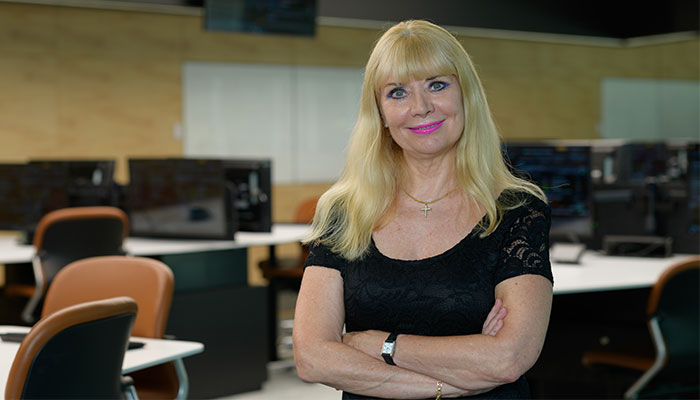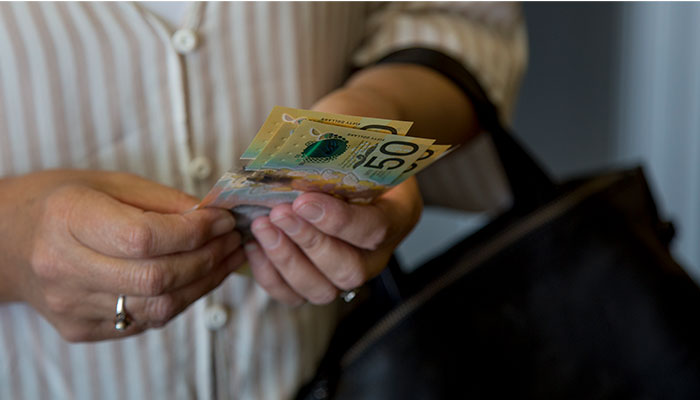Australia has had its fair share of high-profile money laundering cases in recent years, and even has the dubious honour of being listed as a “major money laundering country” by the US.

Today, the Financial Secrecy Index declared Australia is a nation that continues to host “significant quantities of illicit funds from outside the country” and that it needs to do more to counter money laundering and tax avoidance.
It has also been listed by the US State Department as a “primary jurisdiction of concern” when it comes to money laundering.
Money laundering in Australia is a big business usually associated with organised crime and widely used for drug activities and supporting terrorism. The United Nations estimates that the amount of money laundered globally in one year is 2 to 5 per cent of global GDP, or $US800 billion to $US2 trillion.
The Federal Government's financial intelligence agency Austrac identified criminals targeting the business sector to launder money relating to a range of offences including tax fraud, drug trafficking, tobacco smuggling, people smuggling, and advance fee fraud (such as so-called ‘Nigerian’ scams).
Given that money laundering allows criminals and terrorist activities to operate, it is ponderous that Australian authorities allow money laundering (albeit unofficially) to continue at such a seemingly large scale.
Big banks, big fines
In the wake of the Banking Royal Commission, Justice Kenneth Hayne was scathing in his appraisal of this industry. His 76 recommendations targeted key players in Australia’s banking, superannuation and financial industry.
The Commonwealth Bank of Australia was one of the major financial institutions that was severely punished. In 2018, the bank was ordered to pay $700 million plus legal costs after breaching 53,700 money laundering and counter-terrorism financing laws. The case related to CBA’s use of a specific type of ATMs which let customers anonymously deposit and transfer cash. It was found that the machines were being used to launder the illicit proceeds of crime.
It is quite common for ‘dirty money’ to be cleaned through electronic gaming machines in pubs and registered clubs in Australia.
Not to be outdone, in November 2019 the Federal Government's financial intelligence agency, Austrac, accused Westpac of more than 23 million breaches of anti-money laundering and counter-terrorism finance laws involving $11 billion in transactions, including transfers potentially linked to child exploitation. Westpac’s fine is likely to be substantially higher (theoretically up to a trillion dollars) than CBA’s, given Westpac’s higher number of breaches.
Tabcorp, one of Australia’s largest gambling companies, was fined $45 million for failing to report suspicious behaviour over more than five years to regulators. Tabcorp acknowledged they had not reported information required by Austrac, such as when a customer won $100,000, in addition to not reporting money laundering and credit card fraud.
And in the casino sector, there has been widespread coverage into Crown Casino’s ‘whales’ (high rollers) and ‘junkets’ (trips offered to overseas VIP casino customers) in relation to money laundering.
Dirty Money
It is argued that businesses not adhering to anti-money laundering (AML) regulations are allowing criminals, such as drug dealers and terrorists, to thrive. It is quite common for ‘dirty money’ to be cleaned through electronic gaming machines in pubs and registered clubs in Australia. Essentially, money gained through illicit means is fed into pokie machines to “clean” and legitimise the money.

A first: In January, Dr Buchanan presented a research paper at the inaugural Anti-Money Laundering, Countering the Financing of Terrorism conference in Nassau, The Bahamas.
One former ClubsNSW anti-money laundering and counter-terrorism finance compliance auditor says $65-$75 billion worth of cash goes through the pokies across Australia each year and that the problem is “massive and alarming”. And Independent MP Andrew Wilkie has told the Federal parliament that up to 95 per cent of registered clubs in NSW are operating illegally by not adhering to AML/counter terrorism laws.
The amount fed into machines by criminals far exceeds that spent by problem gamblers with psychological addictions to playing pokies.
Typically, criminals can clean up to $10,000 in minutes by feeding high-denominated notes into poker machines, often without even placing a bet. The ‘gambler’ then collects the ‘winnings’ as a cheque from the hotel, which is ‘clean’ and appears to tax and other authorities as a gambling ‘win’.
As a result, the hotel gets high turnover through its machines, of which it can legally keep a percentage of the amount cleaned, through the profits on its machines, and the NSW government gets a percentage through gaming taxes.
Two key questions remain: Are governments turning a blind eye because of the profits they make, and is the gambling industry overly influential?
The gambling industry is doing what it’s doing, but why aren’t the authorities taking action to stamp out this nefarious practice?
Dr June Buchanan is a lecturer at the Department of Marketing at Macquarie Business School.
In January 2020, Dr Buchanan presented a research paper at the Anti-Money Laundering, Countering the Financing of Terrorism conference in Nassau, The Bahamas.



